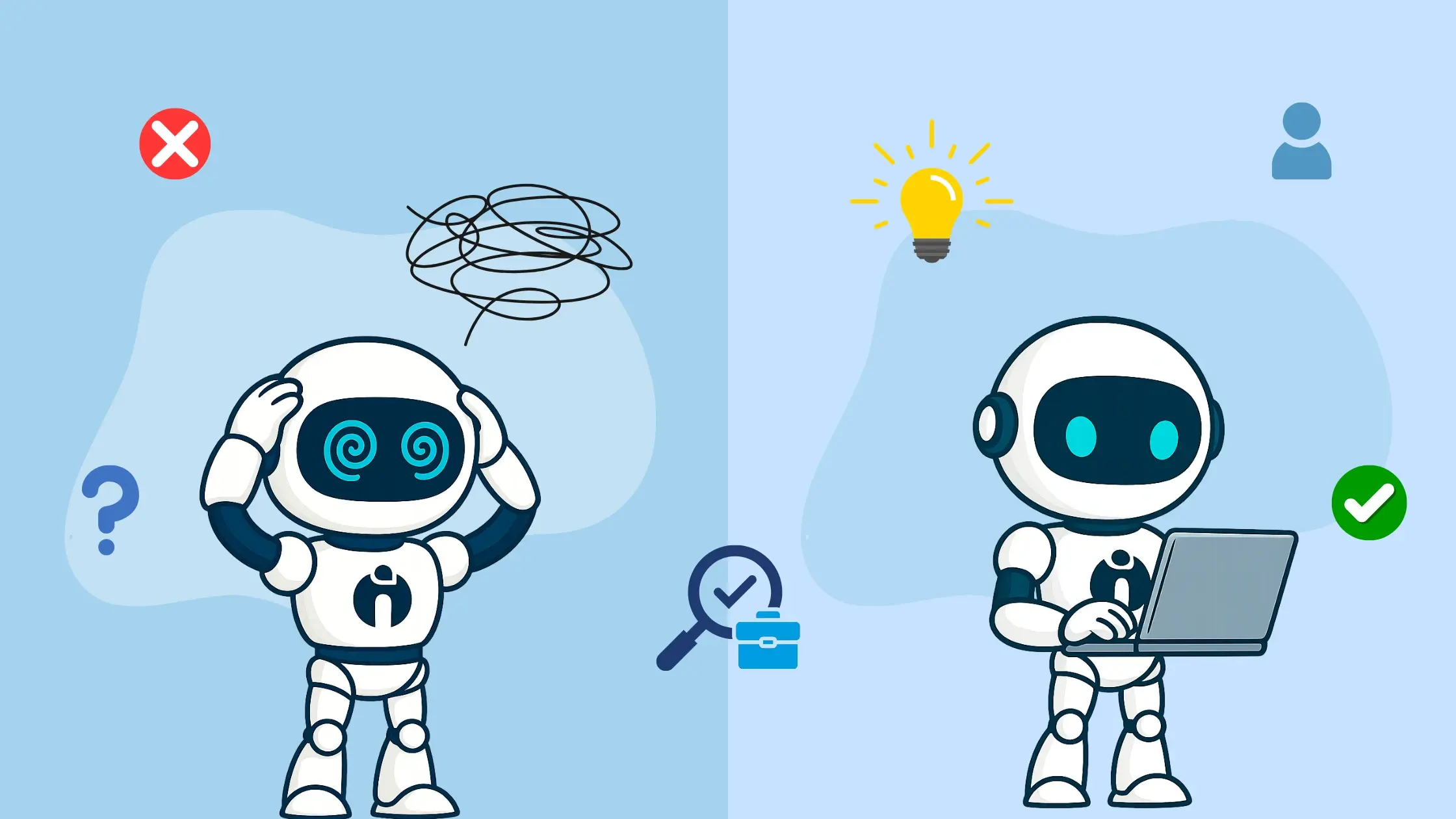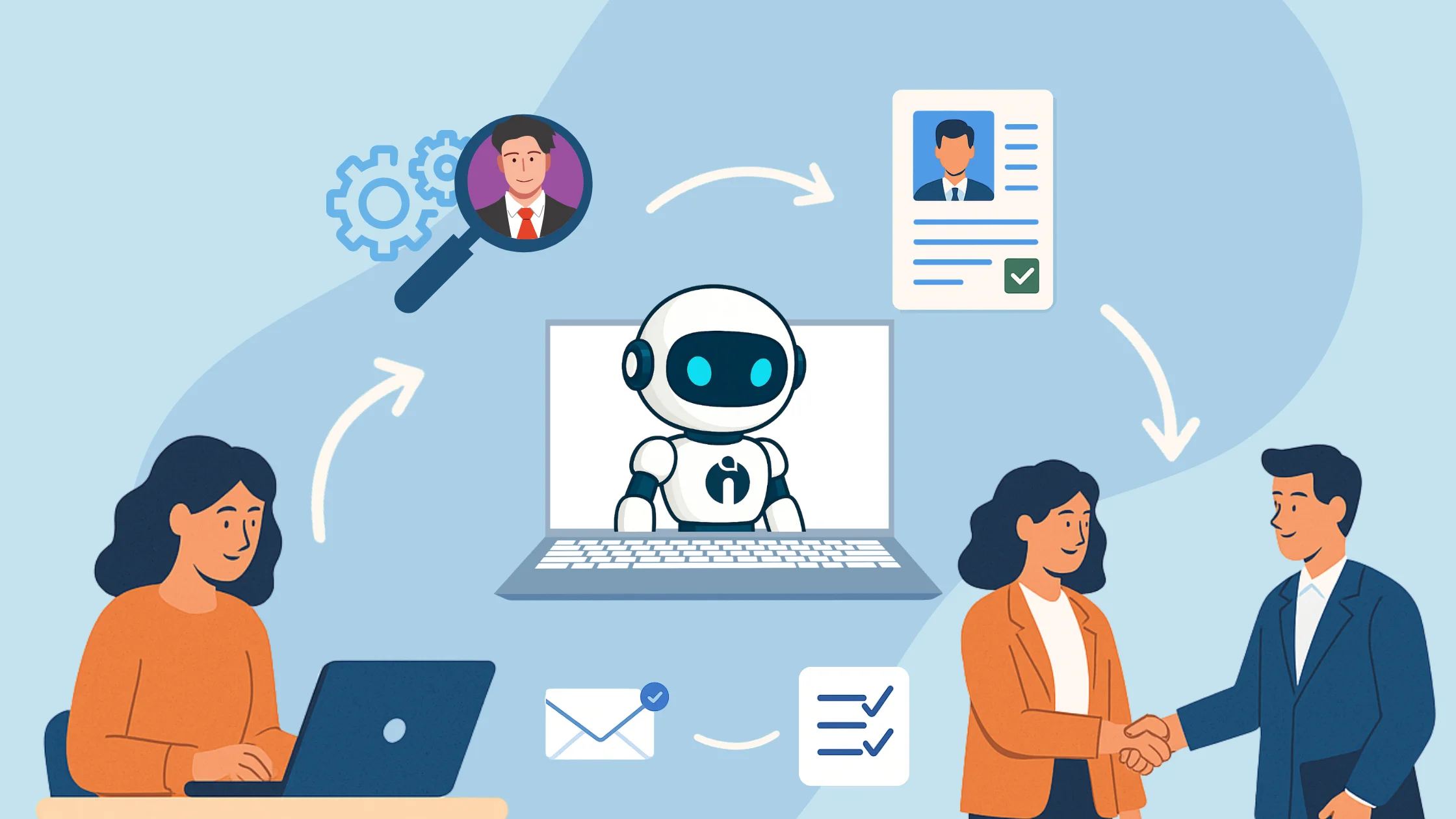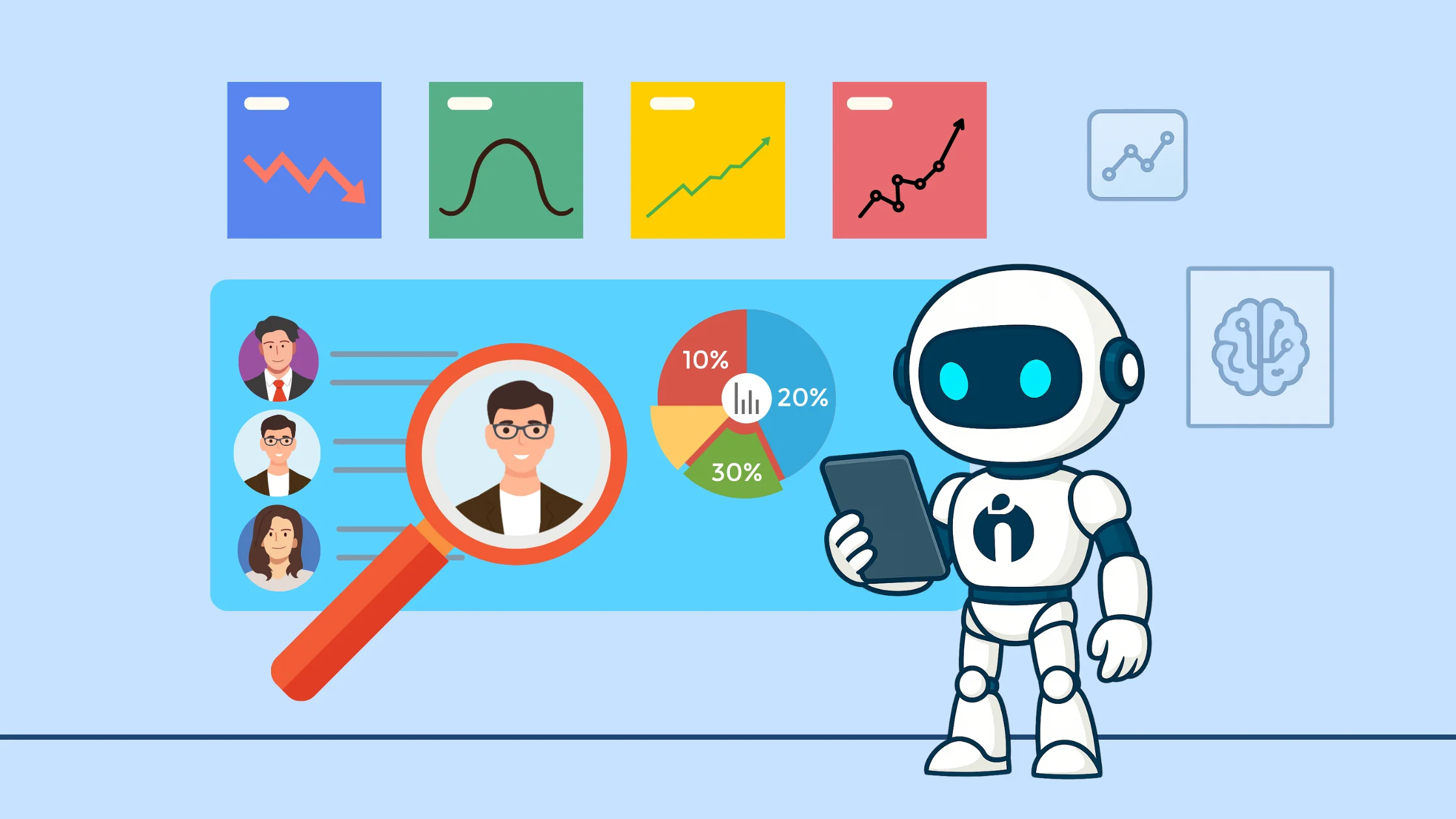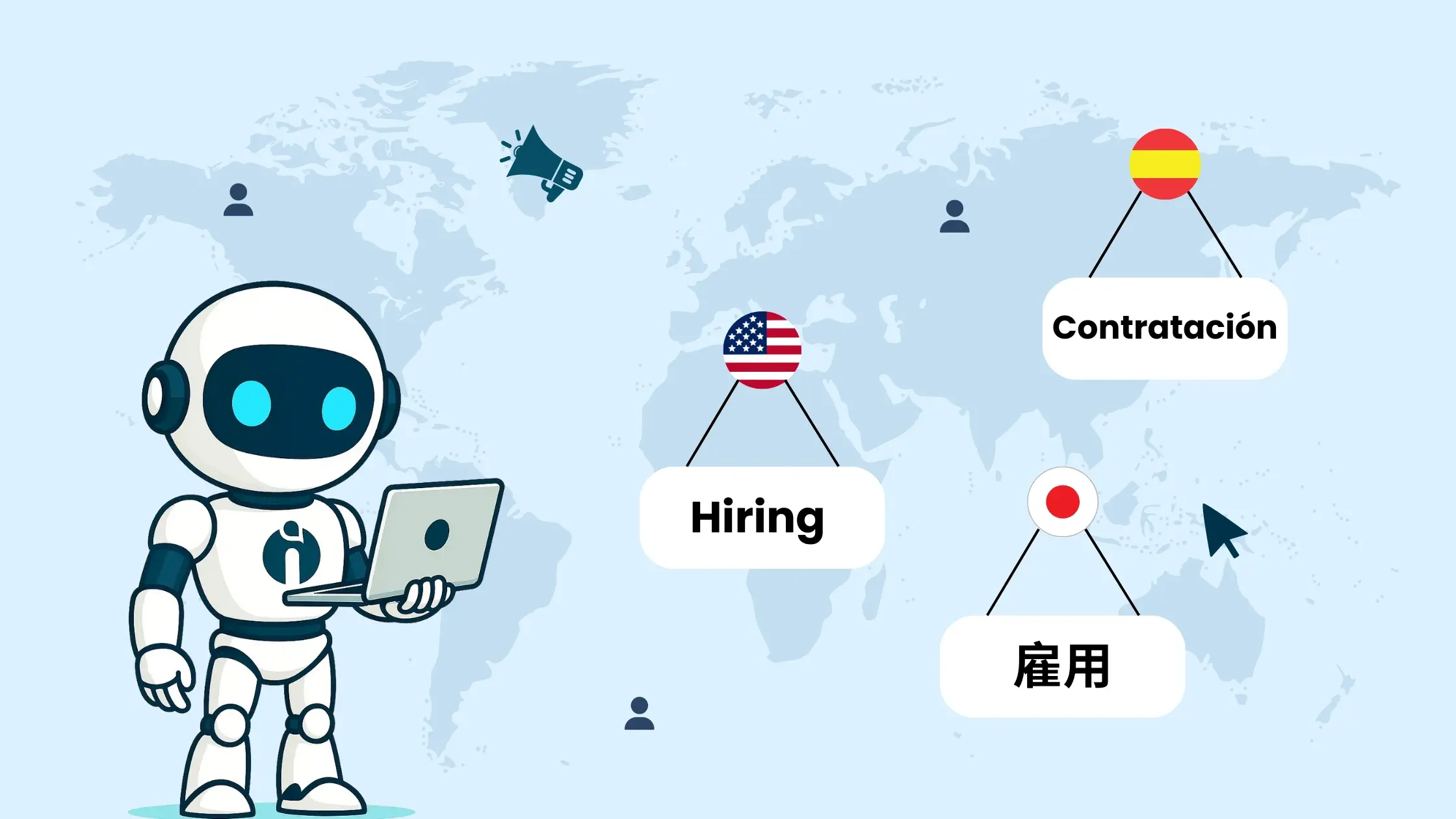TL;DR
- AI recruitment agents assist rather than replace human recruiters by automating repetitive tasks.
- These tools are accessible to organisations of all sizes due to affordable subscription models.
- Modern AI systems help reduce hiring bias through structured evaluation and transparency.
- Implementation of AI recruitment platforms is straightforward with no-code workflows and integrations.
Recruitment has entered a new era. Hiring teams are dealing with high candidate volumes, competitive talent markets, and pressure to fill roles faster while maintaining quality and fairness. With these demands, AI recruitment agents are becoming an essential part of the modern hiring toolkit.
Yet despite their growing adoption, many recruiters and HR leaders still feel uncertain about using AI in their everyday workflows. Not because the technology lacks results, but because a cloud of misconceptions still lingers around it. This hesitation is natural. Whenever an emerging tool promises to transform an industry, it is met with equal parts excitement and caution.
AI recruitment agents are not meant to replace the human recruiter. They are designed to enhance the recruiter's capability, automate repetitive tasks, and bring more structure and intelligence to the hiring process. However, misunderstanding and outdated assumptions often overshadow these advantages. Today, over 65% of recruiters have implemented AI tools, primarily to save time (44%) and improve candidate sourcing (58%). The global AI recruitment market reached $661.56 million in 2024 and is projected to grow at a 6.78 percent CAGR through 2030.
To help talent acquisition teams adopt AI confidently, it is important to clear the air. Below, we break down the most common myths surrounding AI recruitment agents and reveal the reality behind them. Understanding these misconceptions is the first step toward embracing AI as a strategic partner in the hiring process.
Let's explore the myths that often confuse decision-makers when evaluating AI assistants.
Common Myths About AI Recruitment Agents
Myth 1: AI Recruitment Agents Will Replace Recruiters
Myth: AI will eventually take over recruitment roles completely, making human recruiters unnecessary.
Truth: AI handles tasks, not relationships. Recruitment is fundamentally human-centred. It requires emotional intelligence, empathy, negotiation, and judgment. These qualities cannot be automated. AI recruitment agents simply free recruiters from manual tasks so they can focus more on conversations, understanding candidate motivation, and delivering value to hiring managers.
The most successful teams are not those who fear AI, but those who use it to work smarter and offer an elevated experience to candidates and clients. The future belongs to recruiters who combine technology with their human expertise.
Myth 2: AI Agents Are Only for Large Enterprises
Myth: AI tools are expensive, complicated, and only designed for large corporations with big budgets.
Truth: With subscription-based models, companies are now reducing hiring costs by up to 30% per hire, making AI accessible even to small teams. Modern AI recruitment agents are designed for organisations of all sizes. Subscription-based pricing, cloud deployment, and no-code automation have made AI accessible and scalable. Even a small team can automate sourcing, screening, and candidate communication without heavy investment or IT support.
This shift has levelled the playing field. Smaller teams can now compete with larger firms by becoming faster, more organised, and more proactive in talent engagement. AI is no longer a premium tool. It is a competitive advantage for every recruitment professional willing to adopt it.
Myth 3: AI Makes Hiring Biased
Myth: AI systems introduce bias and make unfair hiring decisions.
Truth: Modern AI tools are built to reduce bias through structured evaluation, fairness checks, and transparent audit trails. Algorithms do not get tired or make instinct-based assumptions. With ethical training and human oversight, AI increases fairness while humans provide empathy and judgment.
Together, they create more equitable and consistent hiring.
Myth 4: AI Recruitment Agents Are Hard to Implement
Myth: AI adoption is technically complex, time-consuming, and requires IT expertise.
Truth: Today's AI platforms are built for ease of use. No-code workflows, plug-and-play ATS integration, and ready-to-use templates ensure quick adoption. Teams can see results within days, not months. The only real shift required is mindset; moving from manual habits to tech-enabled hiring practices.
Once teams embrace that shift, implementation becomes straightforward and rewarding.
Myth 5: AI Removes the Human Touch From Recruitment
Myth: AI will make recruitment cold, robotic, and impersonal.
Truth: AI makes hiring more human by removing admin work so recruiters have more time for meaningful conversations, relationship-building, and career guidance. Candidates appreciate timely responses and clarity, and AI helps deliver exactly that.
AI handles the workflow. Humans build the relationship. The result is a hiring process that feels both efficient and personal.
What Recruiters Gain With AI Recruitment Agents
When organisations move past the myths, they experience significant advantages:
-
Faster sourcing and talent matching
-
Reduced manual workload
-
Improved communication and candidate follow-ups
-
Better hiring outcomes and candidate experience
-
More time for strategic recruitment activities
-
Greater placement success
AI recruitment agents help recruiters operate at their highest potential. They empower teams to be more proactive, more data-driven, and more candidate-focused.
Real-world experiences consistently show that once teams adopt AI, they spend less time filtering applications and more time speaking to qualified candidates. Hiring accelerates, quality improves, and recruiters feel more in control of their workflow.
Final Thoughts
AI recruitment agents are not replacing recruiters. They are liberating them from time-consuming tasks and strengthening their ability to build meaningful human connections.
The future of hiring is not technology versus people. It is technology supporting people to hire smarter, faster, and more fairly. Recruitment professionals who embrace AI will lead the next era of talent acquisition, not by abandoning the human element, but by elevating it.
Frequently Asked Questions (FAQs)
1. Will AI recruitment agents replace human recruiters?
No, AI recruitment agents assist human recruiters by handling repetitive tasks like resume screening and scheduling. Recruiters remain essential for relationship-building, assessing cultural fit, and making final hiring decisions.
2. How do AI recruitment agents reduce bias in hiring?
AI evaluates candidates using consistent, structured criteria rather than gut feelings or unconscious preferences. Modern AI tools include fairness checks and transparent audit trails, though they require proper training and regular human oversight.
3. Are AI recruitment tools only affordable for large enterprises?
No, AI recruitment tools are now accessible to organizations of all sizes through affordable subscription-based pricing. Small and mid-sized teams can automate sourcing and screening without significant investment or IT support.
4. How do AI recruitment agents protect candidate data and privacy?
Reputable AI platforms use encryption, secure storage, and comply with regulations like GDPR. Organizations should verify that their AI tools collect only necessary information with proper consent and provide transparency about data usage.
5. How quickly can my team implement AI recruitment agents?
Most AI recruitment platforms can be implemented within days using no-code workflows and plug-and-play ATS integration. The main requirement is shifting from manual habits to tech-enabled practices, with vendors typically providing onboarding support.















